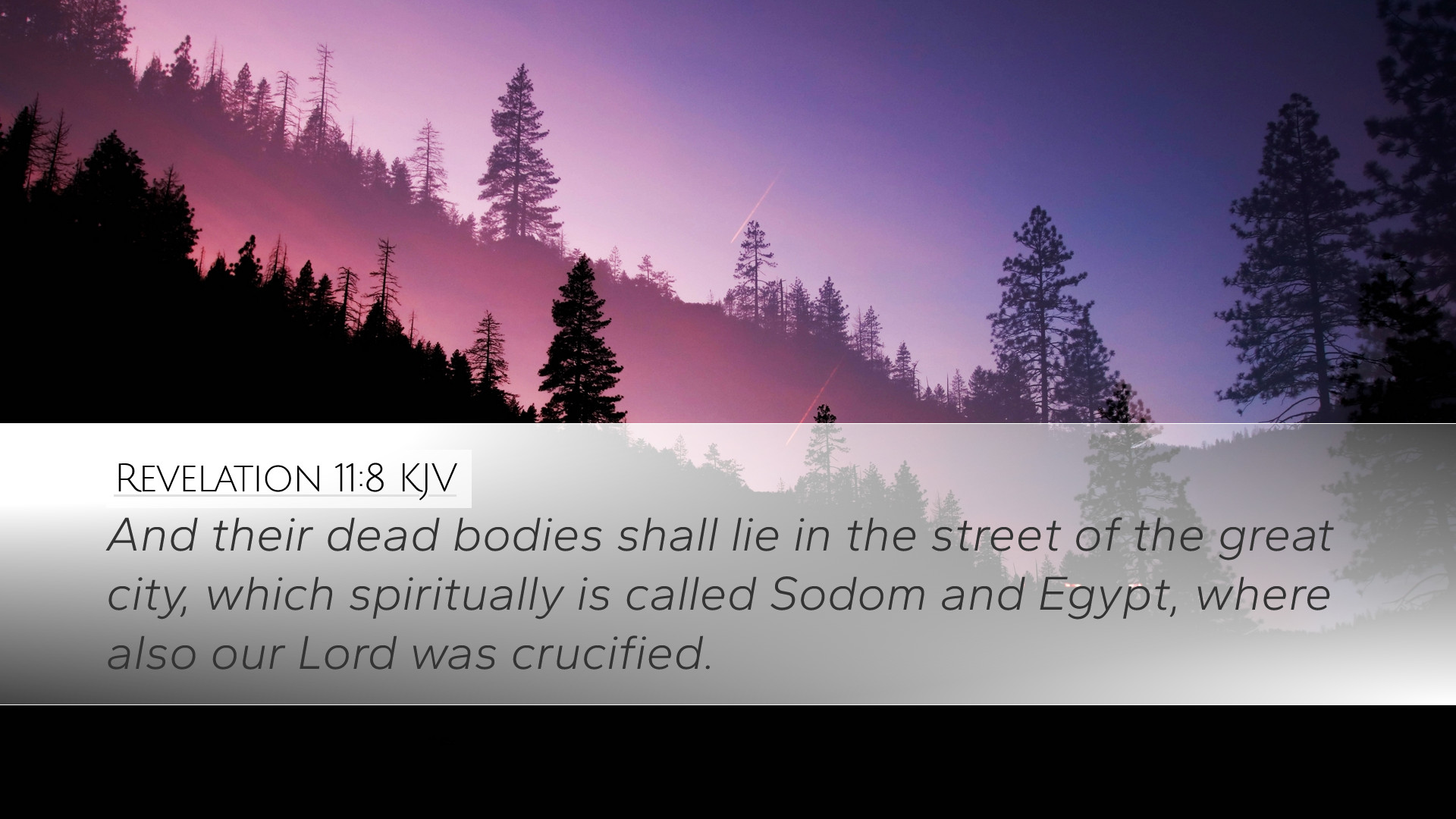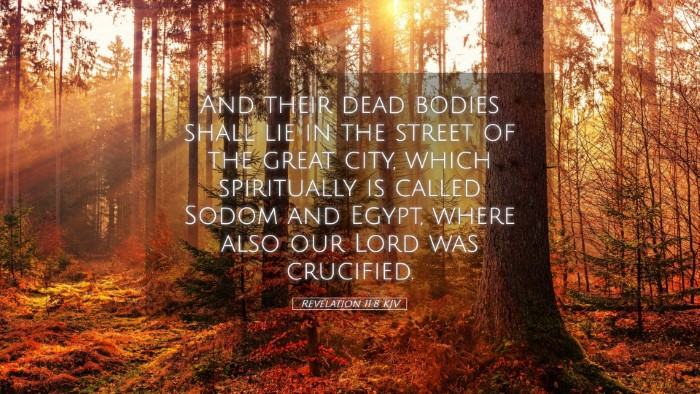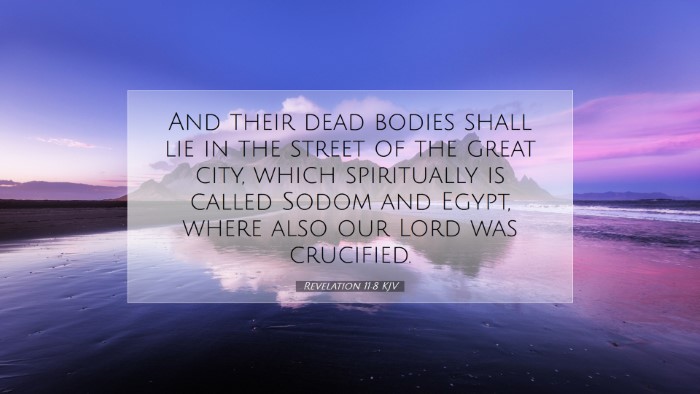Bible Commentary on Revelation 11:8
Verse Context: Revelation 11:8 states, "And their dead bodies shall lie in the street of the great city, which spiritually is called Sodom and Egypt, where also our Lord was crucified." This verse is part of the larger narrative of the two witnesses, a significant moment within the prophetic visions of John in the Book of Revelation.
Overview of Interpretation
This passage has been historically acknowledged as pivotal in the eschatological framework. Commentators like Matthew Henry, Albert Barnes, and Adam Clarke provide distinct yet complementary insights that shed light on the theological implications and historical contexts of this verse.
Matthew Henry's Commentary
Symbolism of the Great City: Matthew Henry views the "great city" as representing not an actual geographical location but a spiritual state characterized by moral corruption and rebellion against God. He identifies this city with Rome, the center of persecution against early Christians, suggesting that the imagery reflects the spiritual decline and idolatrous practices of the Roman Empire.
Sodom and Egypt Reference: Henry emphasizes the profound symbolism behind the comparisons to Sodom and Egypt. Sodom, known for its flagrant immorality, and Egypt, historically the oppressor of God's people, epitomize states of moral and spiritual degradation. This reference serves to demonstrate the fallen nature of the city in which the witnesses' bodies lie, showcasing the hostility toward divine truth.
Albert Barnes' Insights
Identification of the Witnesses: Barnes draws attention to the fate of the two witnesses, after describing their prophesying and subsequent martyrdom. He states that their dead bodies lying in the street signifies the rejection of divine messages by the people, a theme echoed throughout the prophetic scriptures.
Implications of Being "Dead": Barnes posits that the death of these witnesses symbolizes the temporary triumph of evil over good. The imagery expresses the apparent power of corrupt systems to silence the truth. However, he also recognizes that their death is not the end, as it will set the stage for resurrection and vindication. This victory reveals God's sovereign purpose amid persecution.
Adam Clarke's Analysis
Interpretation of "The Great City": Clarke interprets "the great city" as primarily representative of Jerusalem, reflecting its historical significance as the location of Christ’s crucifixion. He argues that Jerusalem's rejection of Christ and His message puts it in alignment with Sodom and Egypt, places synonymous with judgment and sinfulness.
Theological Themes: Clarke also explores the suffering and rejection faced by God’s emissaries. He emphasizes that the two witnesses, while heralding divine truths, encounter severe opposition from the very people they seek to save. Clarke’s interpretation encourages deeper reflection on the nature of prophetic ministry—a calling often laden with personal sacrifice.
The Spiritual Meaning
Contemporary Relevance: The verse resonates powerfully within modern contexts. The portrayal of dead bodies in the street symbolizes the disregard for the Truth amidst a culture that often embraces moral relativism. For pastors and theologians, this serves as a call to consider how the message of Christ is received in contemporary society.
Application for Leadership and Faith
Encouragement Amidst Opposition: Both Henry and Barnes encourage clergy and laypersons alike, reminding them that opposition faced for the sake of truth is not new, but rather a recurring theme throughout biblical history. The call to perseverance invites believers to remain steadfast in their witness, regardless of cultural climates.
Final Reflections
Revelation 11:8 invites readers into a profound contemplation of the nature of God’s message in the world. By weaving together the historical insights and spiritual truths articulated by these commentators, one can appreciate the ongoing dialogue between God’s redemptive purpose and human resistance. Ultimately, this verse speaks to the enduring power of God's word, the inevitability of divine justice, and the hope that arises from apparent defeat.


